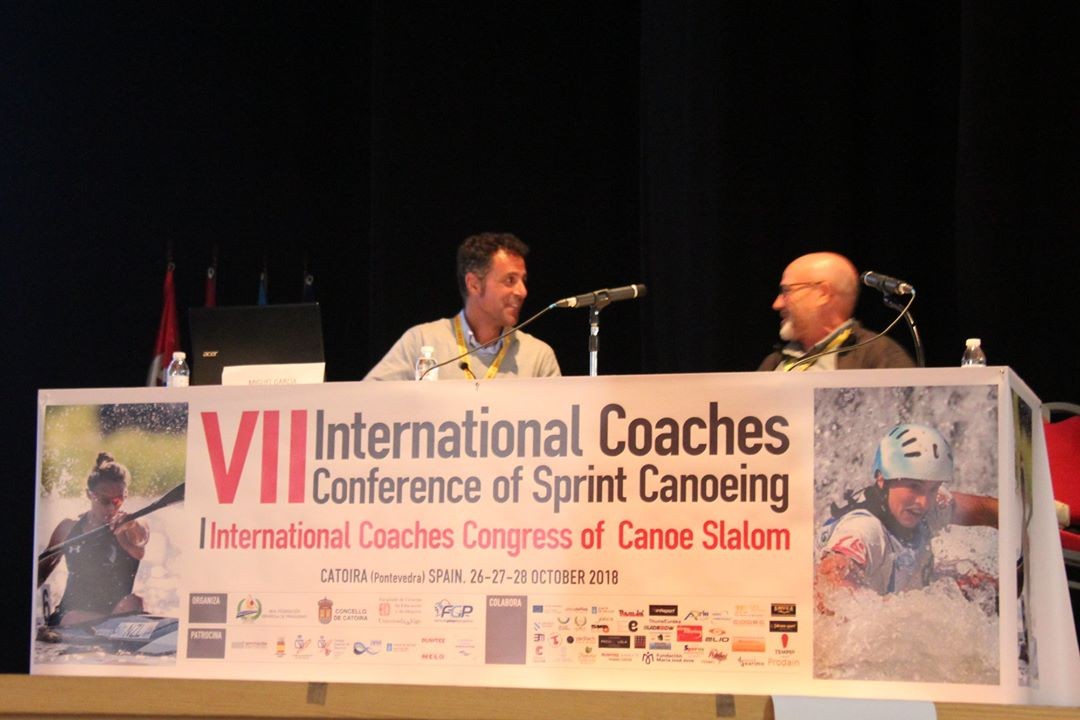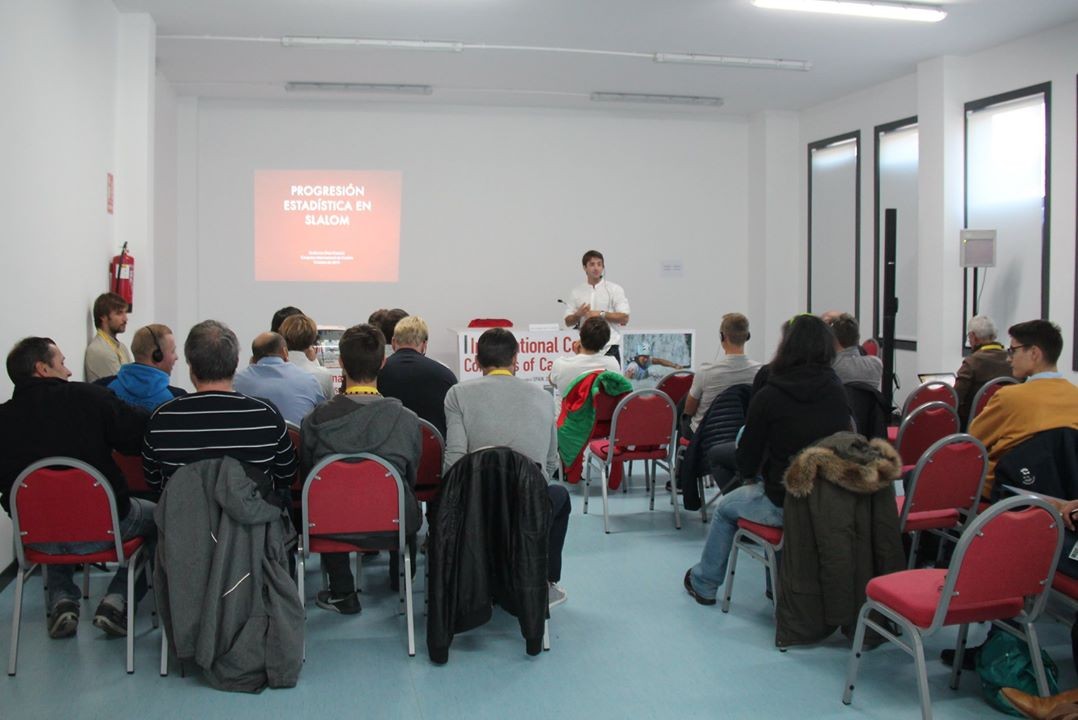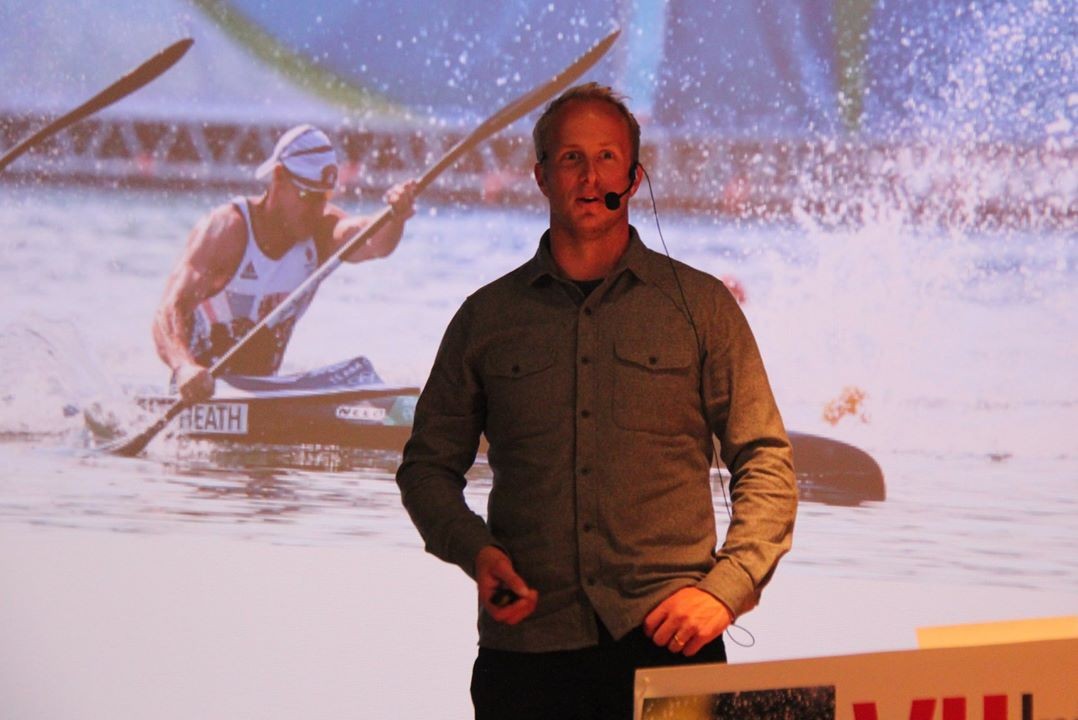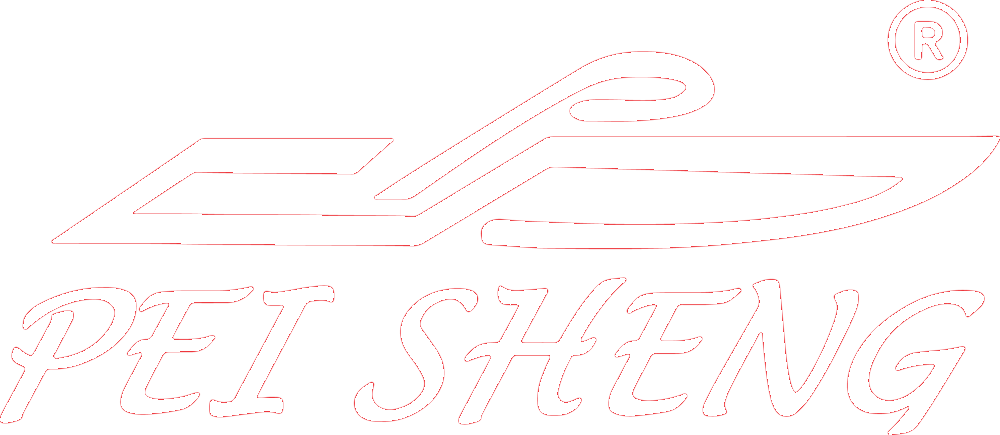One of the most anticipated presentations of the 2018 edition of International Congress of Canoeing coaches was the presentation of Miguel Garcia, coach of Saul Craviotto and his colleagues in the K4 crew. Miguel Garcia presented the work and changes they have introduced when Saul Craviotto switched from the 500 metres distance to the new Olympic distance of 200 metres. He has explained the evolution between the years 2008 and 2016. Miguel Garcia showed the tests they have exectued during the transition period and showed photos of Saul Craviotto where it was clearly visible he gained 8 kilograms of muscles in this period.
Second day of presentations was opened by Jernej Župančič Regent who was talking about basic technique, meta technique and micro technique in canoe sprint and did explanations on cases of top level athletes such as Max Hoff, Aleh Yurenia, Rene Poulsen, Marko Dragosavljević ...
At the same time Jean Michel Prono, chair of the ICF canoe slalom technical committee, presented the history and evolution of technical video system. He pointed out that the crucial moment for the introduction of this system was the controversy at the 2006 World Championships in Prague where the winner picked up 50 penalty seconds but the video was not allowed as a proof.
Spanish national canoe slalom coach Guillermo Diez Canedo who had a presentation also yesterday talked about the statistics progression in competition.
Two-times Olympic medallist Jon Schofield from Great Britain who is now working on his PhD talked about his career and training process. He started as a wildwater paddler winning medals in junior and senior level, before changing the discipline to canoe sprint. Coming from wildwater racing he suggested paddlers should try themselves in other disciplines too. From his experience this has been important factor in easier adaptation to crew boat.
Hungarian coach Viktor Huvos presented the device they use during the trainings. They have been developing the device from the year 2011. This device mesures the parametres of athletes, physical, physiological and neurological parametres, analizies the biorobot core capabilities, determines athlete's training intensities and offers the analisis of the crew boat configuration.
Ismael Uali Rojo and Jonathan Monteagudo presented the paracanoeing. They opened their presentation with definition of paracanoeing and categories. They have continued with comparison of status of paracanoing to other parasports and talked about the activities of well developed paracanoeing nations, such as Brazil and Australia. Jonathan Monteagudo presneted the activities of the Maria Jose Jove foundation which among other offers the paracanoieng programme.
The reamaining three presentations of the day were more orientated towards health. Jose Luis Garcia Soidan from the University of Vigo discussed the epidemiology, prevention and treatment of canoeing injuries. He talked about the most common solutions, one of them is water or isotonic drink. One of the things he pointed out was the amount of sleep. He stated that 8 hours of sleep should be right, despite the fact that some people might feel in form already after 6 hours of sleep, but the experience shows eight hours are optimal.
Maria Brion Martinez continued the presentations with genetics of sudden deaths of athletes. She explained the big and potential risk factors and introduced the most common cardiac diseases. She also talked how they diagnose the diseases.
In the final presentation of the day Miguel Angel Cervera Navarro talked about the sports nutrition against muscle damage.
On Sunday the congress will close with the final four presentations of the weekend.
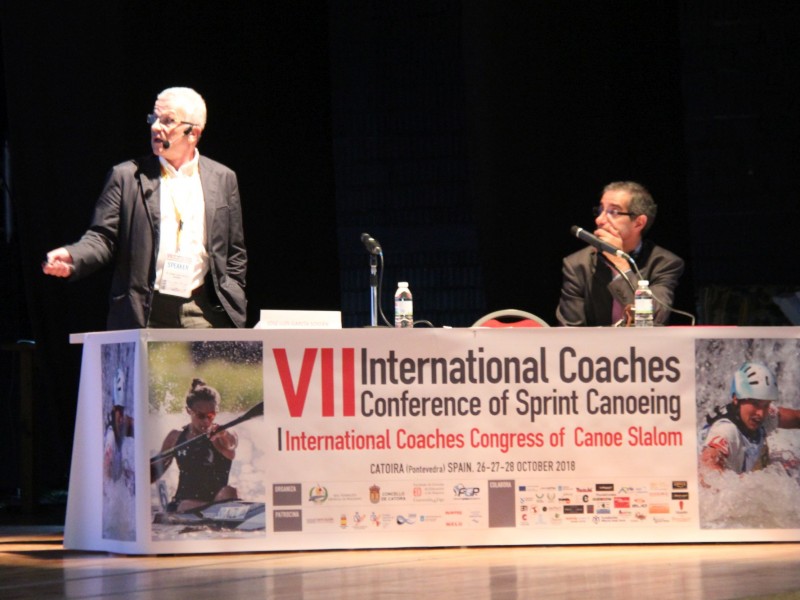 27.10.2018
27.10.2018
